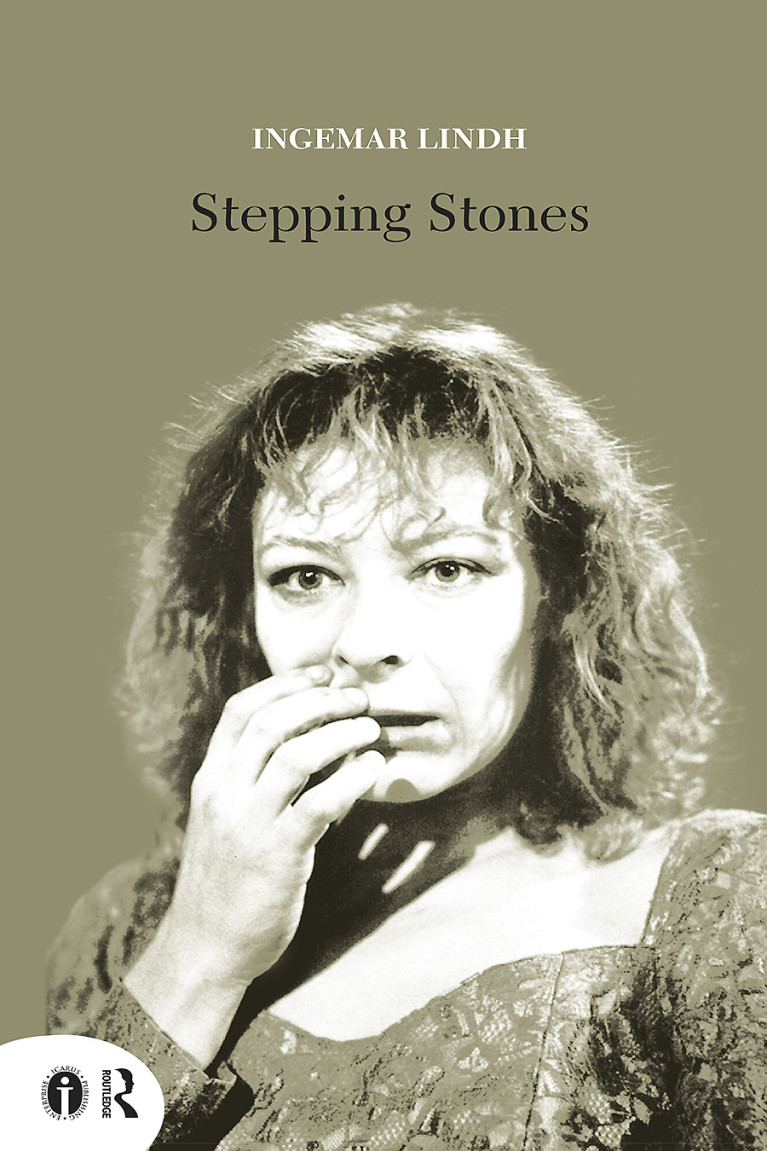- Autor: Ingemar Lindh
- Przekład: Benno Plassmann i Marlene Schranz
- Wydawnictwo: Routledge, Icarus Publishing Enterprise
- Data wydania: 2013
- ISBN: 978-0-415-72298-8
- Format: 135×215mm
- Liczba stron: 232
- Rodzaj oprawy: miękka
Stepping Stones
Ingemar LindhPlease note that we ship only to addresses within Poland. If you want to order a book and have it shipped to an international address, email us at ksiegarnia@grotowski-institute.pl.
Translated from Italian by Benno Plassmann and Marlene Schranz
with the assistance of Magdalena Pietruska
Edited and introduced by Frank Camilleri
Stepping Stones is the book of a practitioner. It documents the work of a laboratory-based practice that investigated the principles of collective improvisation as a performance practice. Though the dynamics and mechanisms of collective work and improvisation have been amply researched in training and composition contexts, not so can be said in the context of performance. Ingemar Lindh’s research, which announces a resistance to choreography, fixed scores, and directorial montage, has significant implications for the practice and theory of performance in a post-dramatic age.
Stepping Stones is, to quote Lindh himself, ‘a book not written but spoken’ in the sense that it is a collection of transcripts and writings by and about Lindh. The first two chapters are based on a transcript of a workshop held in Porsgrunn (Norway) in 1981. In these chapters Lindh’s unique work on performer process (including the adaptation of isometric training for actors) is expounded in the context of his views on theatre. Chapter 3 is made up of two letters to a friend, the first detailing Lindh’s artistic biography and the second commenting on the knowledge acquired in the process. Chapter 4 is an interview with Lindh by Paolo Martini with a focus on the ethics of his aesthetics. Chapter 5 is a chronology by Magdalena Pietruska of the Institute för Scenkonst’s twenty-five years of operation under the direction of Lindh.
Photographs by Maurizio Buscarino and Stefano Lanzardo provide visual documentation of the history and research of Lindh’s Institutet för Scenkonst. The book also contains an introductory chapter by Frank Camilleri which places Lindh’s work within a historical context as well as features a glossary of terms, names, and performances. Stepping Stones was first published in Italy in 1998. A Swedish edition appeared in 2003.
Ingemar Lindh (1945–1997) studied with the founder of Corporeal Mime Étienne Decroux in Paris (1966–68). Together with Yves Lebreton and other former students of Decroux, he founded the mime troupe Studio 2 in 1969 based at Odin Teatret in Holstebro. In 1971 Lindh founded his own theatre laboratory in Sweden, the Institutet för Scenkonst (Institute for Scenic Art) which researched the principles of collective improvisation conceived as performance. In 1984 the Institutet moved to Pontremoli (Italy) where they operated until 1996. Lindh died suddenly in Malta in June 1997 during a break in a work session.
Considering that 50% of all books in translation worldwide are translated from English, whilst only 6% are translated into English, Odin Teatret (Denmark), the Grotowski Institute (Poland) and Theatre Arts Researching the Foundations (Malta) have created Icarus Publishing Enterprise, whose purpose is to present texts by artists and scholars in English translation about the practice and vision of theatre as a laboratory.
Icarus was the name of a schooner that sailed from Civitavecchia in 1697 with a cargo destined for a Venetian merchant resident in the international trading port of Smyrna. Its mythological name was intended, paradoxically, as a bringer of good luck, to ward off shipwrecks. In its hold, the small vessel also carried a luxurious curtain never used before, a few painted scenes and a number of scripts and musical scores from a theatre erected in Rome by Queen Cristina of Sweden and torn down on the order of Pope Clement X.
Similarly to that schooner, Icarus Publishing Enterprise wants to ferry into international waters writings of theatre artists and scholars who, despite their value, risk a limited circulation because of the language in which they have been written. We know by experience that theatre studies are effective only if they succeed in piercing the wrappings of academic commonplaces and inspire those wishing to do theatre. Many think that the theatre has no future. This may be so. But one thing is certain: in the future there will surely be something that we are unable to imagine now, but that will be called theatre.




